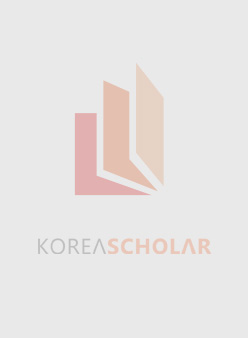간행물
현대문법연구 KCI 등재 Studies in Modern Grammar

- 발행기관 현대문법학회
- 자료유형 학술지
- 간기 계간
- ISSN 1226-3206 (Print)2713-5780 (Online)
- 수록기간 1992 ~ 2021
- 주제분류 인문학 > 언어학 인문학 분류의 다른 간행물
- 십진분류KDC 745DDC 425
권호리스트/논문검색
제103권 (2019년 9월) 6건
1.
2019.09
서비스 종료(열람 제한)
Based on the well-known but less studied patterns of quantifier structures in Korean, this article claims that floating quantifier constructions and their non-floating counterparts are underlyingly distinct and that the bifurcation follows from Chomsky’s (1995) economy principle of derivations. This analysis of quantifiers has important consequences for several issues and phenomena, including scope facts, presence or absence of floating numeral quantifiers across languages, and pronominal alternations in English. It also has theoretical implications of eliminating the concept of pied-piping from grammar, a desirable result under the minimalist tenet of economy.
2.
2019.09
서비스 종료(열람 제한)
The purpose of this paper is to verify the hypothesis of the Great Complement Shift (GCS), according to which infinitival complement is being replaced by prepositional gerund over time. The advance of the to plus gerund (to-gerund) is considered to be the most prominent pattern of GCS (Rudanko 2010, etc.). On the basis of the Corpus of Historical American English, this paper examines the frequency changes from the 1820s to the 2000s involving eight predicates expected to have undergone GCS. It turns out that object and confine have completed the change in the early twentieth century and only to-gerund is used now. The predicates consent, prone and look forward have partially undergone GCS: among them look forward is in the front line and to-gerund overtook to-infinitive in the 1850s and have since spread rapidly; with consent and prone, to-infinitive is still used more frequently but to-gerund is increasing and to-infinitive is slightly decreasing over time. The verbs agree, assent and aspire differ from the others in that to-infinitive has not decreased at all. Since to-gerund is slightly increasing with these verbs, GCS is still justified but not at the expense of to-infinitive.
3.
2019.09
서비스 종료(열람 제한)
This study deals with the discourse functions of the response particles in a split interrogative (hereinafter, SI), thereby contributing to effectively identifying the characteristics of the tag part in SI. I provide a piece of evidence, through the corpus data, that the tag part must be a non-wh-question and essentially functions as a biased polar question. The data tell us that the interlocutors can choose whether to use the SI or a regular question. Through the data that the speakers select a regular question, this paper tries to provide the evidence. In the process of analyzing their functions in SI, this study demonstrates that these particles must have a referential scope in picking up their antecedents in the previous question: a wide or narrow scope in referring to their antecedents. This characteristic leads us to identify the biased property of the tag question, therefore arguing that this tag must be a biased polar question. In the course of these works, we figured out that the addressees apparently take three strategies to respond to the split interrogative: to respond only the wh-question, the tag part, or both.
4.
2019.09
서비스 종료(열람 제한)
The main purpose of this paper is to study the differences in use between the English adjectival synonyms distant and remote through COCA(The Corpus of Contemporary American English), and to assess Korean college students’ understanding of distant/remote+noun combinations. The major findings of the paper are summarized as follows. First, The adjective distant is mostly used with space/place nouns, while remote is mainly used with information/communication/ computer-related or abstract nouns. Second, according to nouns which they occur together with, the two adjectives sometimes have (almost) the same meaning (e.g. distant/remote island), and sometimes a considerably different meaning (e.g. distant/remote office). Third, the same noun is sometimes used in different meanings (e.g. distant/remote connection), depending on whether it is used with which one of the two adjectives. Fourth, the overall average score of the subjects was as low as 45.2%, and the average score by type was 62.6%(remote+noun), 56.6%(distant+noun), and 16.4% (distant-remote+noun).
5.
2019.09
서비스 종료(열람 제한)
Metaphor is a mapping between elements of source and target domains. When the mapping arises, rich background knowledge of source elements, which is called metaphorical inference, is mapped onto a target domain, resulting in metaphorical entailment. Since Lakoff and Johnson (1980), the mapping has been considered as being partial. It has been claimed that some of the elements are highlighted in the mapping and others are hidden. However, the partial nature of the metaphorical entailment has not been discussed so far. Bridging the gap, this paper observes the partial nature of metaphorical entailment, conducting the case study with the metaphor LIFE IS A BASEBALL GAME. The detailed investigation of the metaphor reveals that there are four different types of the partial entailment and that the partial nature of the entailment is due to the metonymic highlighting of various inferences.
6.
2019.09
서비스 종료(열람 제한)
The present study aimed at investigating the effects of collaborative work between Korean EFL university students and international foreign students on Intercultural Communicative Competence. Twenty four students (14 Korean students and 10 international students) participated in this research. Chen and Starosta’s (2000) intercultural sensitivity scale was implemented with Paradigm Software to measure the participants’ resolution latency time while they were responding to the survey. The results demonstrated that two groups showed significant differences in the areas of respect for cultural difference and interaction confidence. Also, apart from the response value, the analysis of resolution latency time showed other aspects of participants’ cognitive level of intercultural sensitivity. Thus, this study indicates that a multi-round analysis can give a more in-depth insight beyond the mean value of the survey’s response.

